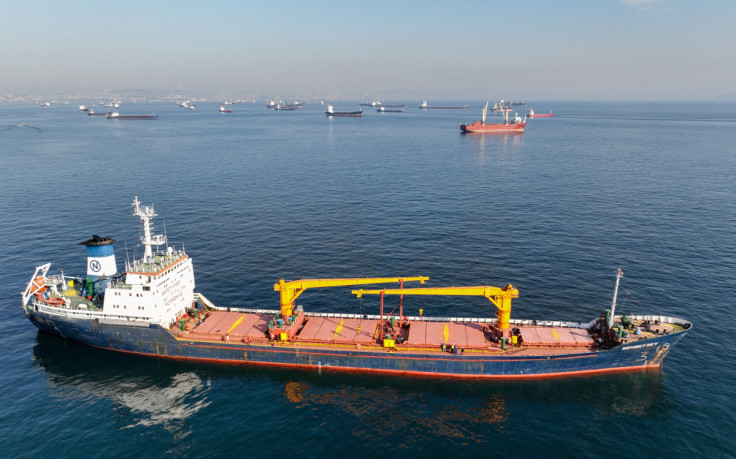Kyiv Seeks Guarantees Black Sea Grain Deal Will Work If It Allows Russian Ammonia Transit

Ukraine is seeking guarantees from Moscow and the U.N. that a deal on the safe export of Black Sea grain will work normally if Kyiv allows Russian ammonia to transit Ukrainian territory, a Ukrainian official said on Tuesday.
The United Nations and Turkey brokered the Black Sea Grain Initiative between Moscow and Kyiv last July to help tackle a global food crisis aggravated by Russia's invasion of Ukraine, a leading global grain exporter.
Russia agreed to a two-month extension of the deal this month but has said the initiative will cease unless an agreement aimed at overcoming obstacles to Russian grain and fertiliser exports is fulfilled.
The demands set out by Moscow include the resumption of the transit of ammonia from Russia via Ukrainian territory to Pivdennyi port in Odesa, from where it is exported. Transit of ammonia, an important part of nitrogen-based fertilisers, was halted via the pipeline after Russia's invasion.
"We do not understand now - does the ammonia pipeline itself solve something or not? If it does not solve anything by itself, then there is no dialogue," Yuriy Vaskov, Ukraine's deputy renovation minister, told a grain conference.
"If it (ammonia) is a key issue, then they, the U.N., must clearly say that if the ammonia pipeline resumes working, then Ukraine will have such opportunities (to export grain in a normal way) and then our top political leadership will decide whether it is in our interests or not."
The grain deal has not yet resumed full operations since it was extended, and no ships have been authorised to travel to Pivdennyi port since April 29, the U.N. said last week.
Russia's demands to improve its grain and fertiliser exports include the reconnection of Russian Agricultural Bank (Rosselkhozbank) to the SWIFT international payment system.
They also include the resumption of supplies of agricultural machinery and parts; a lifting of restrictions on insurance and reinsurance; and the unblocking of assets and accounts of Russian companies involved in food and fertiliser exports.
Ukrainian officials have said that since mid-April, Russia has "unreasonably restricted" the work of the Black Sea grain deal. Russia has denied this.
A senior government source told Reuters this month that Kyiv would consider allowing Russian ammonia to transit its territory for export on condition that the Black Sea grain deal is expanded to include more Ukrainian ports and a wider range of commodities.
© Copyright Thomson Reuters 2024. All rights reserved.





















